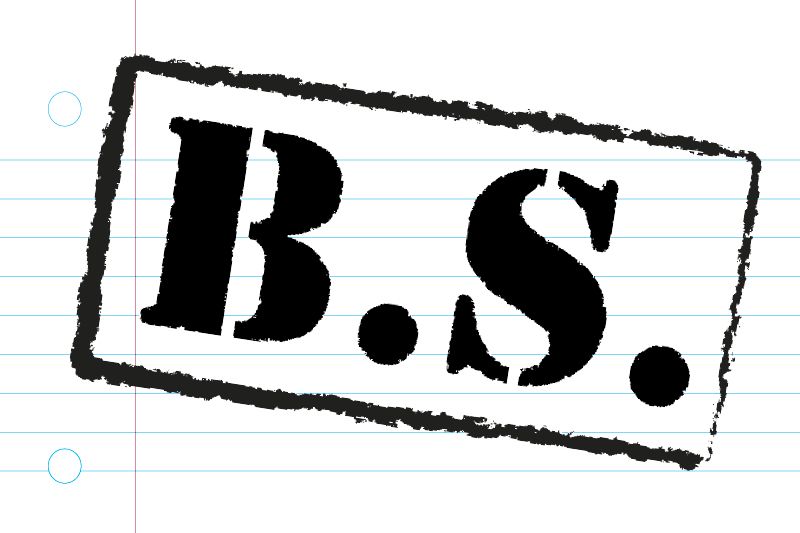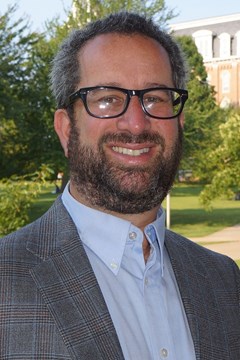B.S.

B.S./HNRC 4013H-003
WEDNESDAYS, 2-4:50 p.m., SPRING 2019
GEAR 243
Students: here is the Spring 2019 Signature Seminars application form. The deadline to apply is 11:59 Thursday, October 25, 2018.
We encounter B.S. all the time, but what exactly is it? How can we detect B.S. and avoid its harms? Why does so much B.S. exist? Does it have some beneficial qualities?
There is no shortage of B.S. in our society, from the loaded notion of "fake news" to much of advertising, corporate mission statements and strategic plans. Does a particular brand of toothpaste really whiten teeth better than any other? A particular company says they strive for excellence in customer service, but what does this really mean? And in a world where scholarly research is increasingly focused on shaping a better world rather than simply describing the truth, even academia is becoming more susceptible to B.S.
This course will explore these and other issues related to the topic of B.S. The main purpose of the course is to improve the ability of students to engage in critical thinking and skeptically assess claims; that is, to avoid B.S. We will consider examples of B.S. in a variety of fields, including education, psychology, business, medicine, politics and journalism. From these examples we will attempt to develop a general understanding of B.S. that could be applied to any field.
Course Credit:
- All students: 3 hours of honors credit
- Fulbright College:
- Social Science Colloquium
- Upper-level honors credit in Political Science
- Upper-level honors credit in Sociology
About Jay Greene:
 Jay P. Greene is Distinguished Professor and Head of the Department of Education Reform
at the University of Arkansas. Greene’s current areas of research interest include
school choice, culturally enriching field trips, and the effect of schools on non-cognitive
and civic values. He is also known for his work to improve the accurate reporting
of high school graduation rates, address financial incentives in special education,
and the use of standardized tests to curb social promotion.
Jay P. Greene is Distinguished Professor and Head of the Department of Education Reform
at the University of Arkansas. Greene’s current areas of research interest include
school choice, culturally enriching field trips, and the effect of schools on non-cognitive
and civic values. He is also known for his work to improve the accurate reporting
of high school graduation rates, address financial incentives in special education,
and the use of standardized tests to curb social promotion.
His research was cited four times in the Supreme Court’s opinions in the landmark Zelman v. Simmons-Harris case on school vouchers. His articles have appeared in a variety of academic journals, including Education Finance and Policy, Economics of Education Review, Educational Evaluation and Policy Analysis, Educational Researcher, and Sociology of Education.
Greene has been a professor of government at the University of Texas at Austin and the University of Houston. He received his B.A. in history from Tufts University in 1988 and his Ph.D. from the Government Department at Harvard University in 1995.
For an even more in-depth description of "B.S.," and a taste of what to expect from the course, watch Jay Greene's preview lecture: